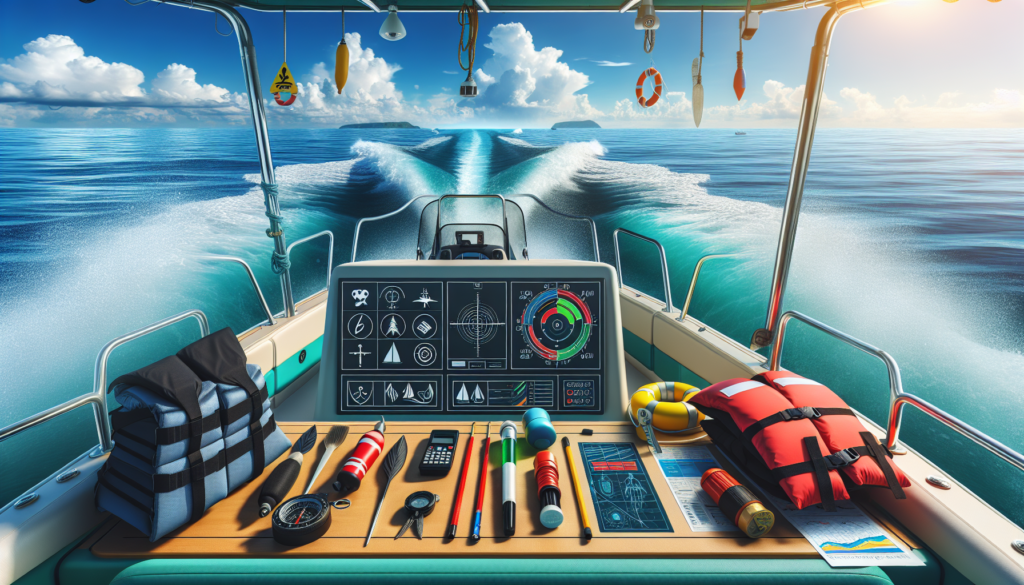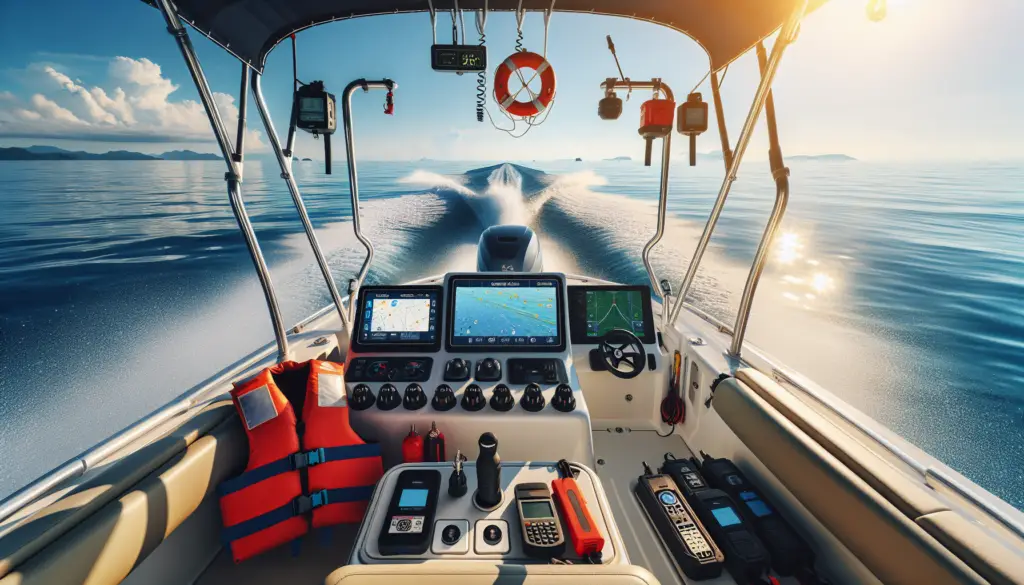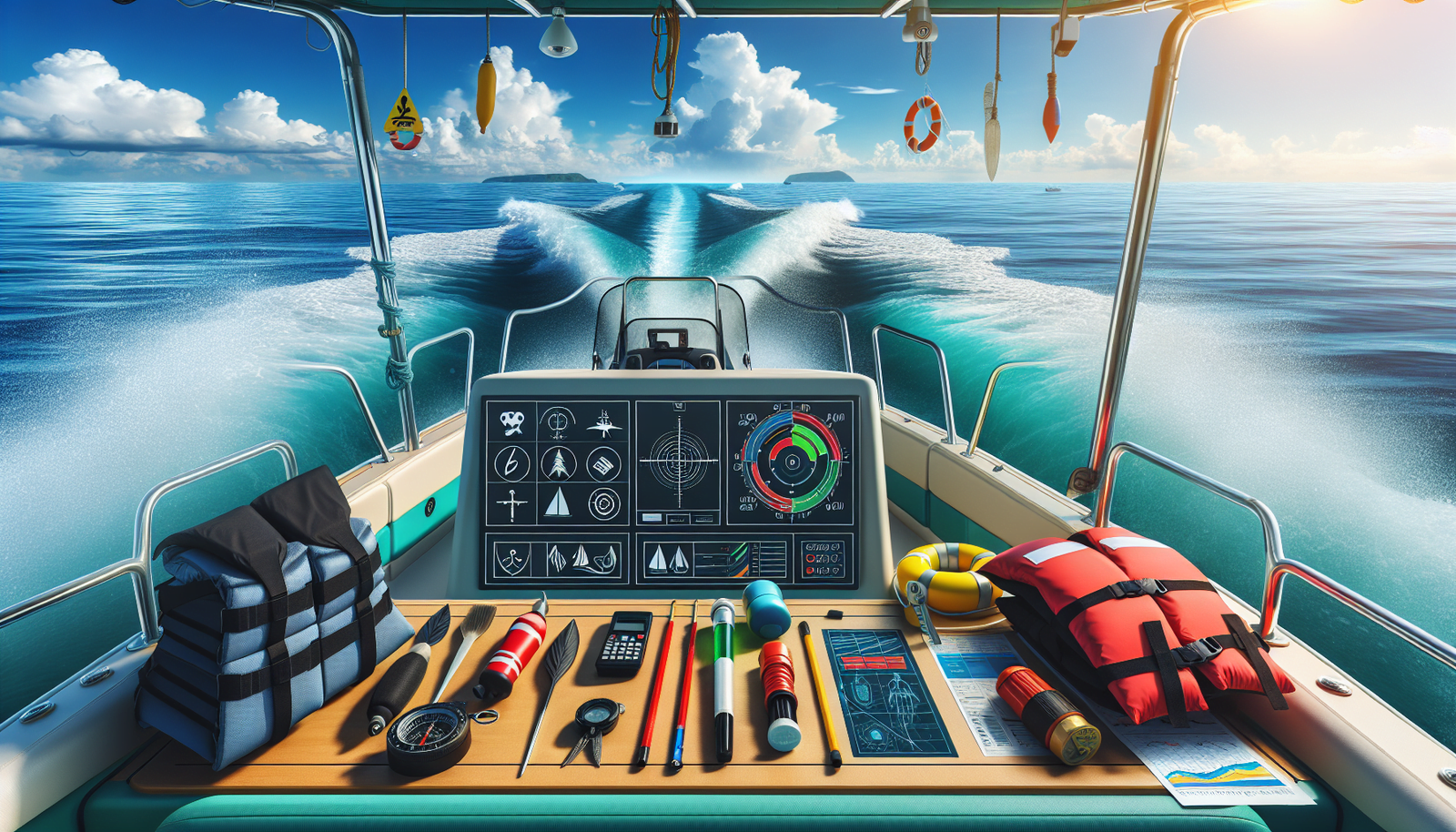Venturing into the world of boating is an exciting journey, filled with wind-swept hair, the intoxicating scent of the sea, and the thrilling hum of a boat cruising through the waters. But, before you unfurl the sails, there are essential pieces of knowledge and safety measures that need to be ingrained. “Boating Safety Tips for Beginners” is your treasure trove of invaluable guidelines – from understanding the importance of life jackets to learning communication protocols for any eventualities. It’s time to anchor down and sail through these guidelines, designed to keep you safe and sound while enjoying your nautical adventures.

Understanding Basic Boating Terminologies
Stepping into the boating world can feel a bit like learning a new language. There are a number of nautical terms you need to understand in order to navigate this new terrain efficiently.
Defining port, starboard, bow, stern
On a boat, you won’t hear left or right but port and starboard. When you’re facing the bow, or front side of the boat, ‘port’ refers to everything on your left, while ‘starboard’ is everything on your right. The bow is the very front of the vessel, while the stern refers to the rear.
Getting acquainted with boating commands
Commanding a boat requires a comprehensive understanding of boating terms. To alter the boat’s direction, we say ‘turn to port’ or ‘turn to starboard’. If we talk about speed, you’ll often hear ‘full speed ahead’ or ‘all stop’.
Understanding other essential boating terms
Every day in a boater’s life, they will undoubtedly encounter words like ‘knot’ which is a unit of speed used in aviation and maritime contexts, ‘leeward’ and ‘windward’ specifying the direction leeward (away from the wind) or windward (towards the wind). Now you’re becoming fluent in this unique nautical language!
Choosing The Right Boat
When it comes to choosing the right boat, it’s like choosing a partner, you need one that suits your lifestyle and meets your necessities.
Deciding based on purpose
Different boats cater to different uses. If you are into fishing, you might want a fishing boat outfitted for your angling adventures. If you love cruising and sightseeing, you might want a deck boat or a pontoon.
Understanding different types of boats
In addition to their intended purposes, also take into account their types. There are motorboats, sailboats, kayaks, jet skis, and many more. Each has its unique features, pros, and cons; therefore, research thoroughly before making a choice.
Taking boat size and capacity into consideration
The size and the passenger carrying capacity are other key factors while choosing a boat. If you are into hosting parties or have a large family, go with larger models. If you prefer solo or have a smaller group, a smaller-sized boat will do just fine.
Getting to Know Your Boat
Once you’ve chosen your boat, getting to know it is essential. As every boat is different, spend some time exploring yours carefully.
Learning about your boat’s controls
The controls might be the most significant part of your boat. The helm, throttle, and navigation systems are your primary interfaces with the boat. Your ability to operate these effectively will largely determine your boating experience.
Familiarizing yourself with safety equipment location
Knowing the location of all your safety equipment is essential. This includes life jackets, fire extinguishers, flares, first aid kits, and so forth.
Understanding key functionality of every part of your boat
From the bilge pump to the anchor, every part of your boat has a purpose. When you understand these functions, you can easily troubleshoot problems and maintain your boat properly.

Boating and Navigation Rules
Just like driving a car, boating also has its rules that you need to understand and follow avidly to ensure safety on the water.
Adhering to speed limits
Like on the road, there are speed limits on the water too. Following these speed limits isn’t just a legal requirement, but a necessity for everyone’s safety.
Right of way rules
These are the rules that determine who has the right of way when two boats cross paths. The key here is to avoid a collision.
Understanding navigation markers and signs
Boat navigation markers and signs provide you with vital information about water depth, hazards, channel locations, controlled areas and more. Recognizing and understanding these will keep you safe on the water.
Weather and Sea Condition Awareness
As a responsible boater, always check the weather before going out and continuously monitor it while you’re on the water.
Checking marine forecasts
Checking marine forecasts is as important as putting on a life jacket. A no-go weather condition would be high winds and severe thunderstorms that can make the waters dangerous.
Importance of understanding wind, waves, and currents
Weather isn’t the only factor at play when you’re on the water. You also need to understand how wind, waves, and currents can affect your boat’s handling.
Recognizing warning signs of changing weather conditions
Weather can change quickly, so look out for warning signs, like dark clouds or a sudden drop in temperature that signal brewing storms.
Safety Equipment and Its Proper Use
Safety is paramount in boating, and while you can’t anticipate every problem, you should be prepared for emergencies when they do arise.
Common safety equipment on boats
Common safety equipment such as life jackets, throw lines, fire extinguishers, first-aid kits, flares, and buoys should be easily reachable in case of an emergency.
Using life jackets and floatation devices
Life jackets and floatation devices are your best friends when things go south. They should fit properly and be worn at all times while aboard.
Emergency equipment like fire extinguishers and flares
Fire extinguishers can help you keep a small fire from becoming a big problem, whereas flares can signal distress to other boats or the coast guard. Remember, these are for emergencies, not for general use.
Boating Etiquettes and Respect for Environment
Being a responsible boater means respecting others and the environment around you.
Respecting other boaters
Whether it’s avoiding excessive wake, keeping noise to a minimum or practicing proper anchoring, always show respect to your fellow boaters.
Noise considerations
Try to minimize noise, particularly in quiet and residential areas. Remember, your idea of a fun time could be someone else’s noise disturbance.
Understanding and implementing clean boating practices
Being on the water doesn’t mean the rules of littering don’t apply. Trash should stay on the boat until you can dispose of it properly. Also, be mindful of fuel spillage and emissions from your vessel.
Handling Boat Emergencies
Emergencies on the water can happen when you least expect them. It’s important to be prepared.
Developing a float plan
A float plan is information about your planned journey that you leave with someone onshore. It should include details such as the boat’s description, who’s aboard, where you’re going and when you intend to return.
Dealing with a capsized boat
Capsizing is one of the most feared boat emergencies. But if it happens, your immediate focus should be to account for all passengers and get everyone aboard.
Handling mechanical failures
Mechanical failures can be mitigated with regular boat maintenance, but sometimes they just happen. Always have a set of tools handy in case minor issues arise.
Importance of Proper Maintenance
Maintaining your boat is as important as driving it properly. It ensures that your boat not only serves you for a long time, but it also keeps you safe on the water.
Routine boat checks
Frequent boat checks are vital to ensure your boat is ready for the water. Check the engine, fuel, electrical systems, safety gear, and the hull, deck and superstructure.
Winterizing your boat
Extreme cold seasons require that boats be winterized. This involves right from draining the engine to thoroughly cleaning the boat and protecting it during the winter months.
Expecting and managing boat wear and tear
Just like with cars, boats too experience wear and tear. Keeping an eye on this and tackling small issues before they become major ones will save you time, money, and ensure your boat runs optimally.
Boating Training and Licensing
Before diving into boating, you must get the necessary training and licensing.
Where to get trained
There are numerous organizations offering boating courses. Look for an accredited institution or a highly recommended training provider.
Understanding the importance of a training program
Training isn’t just about passing the test. It’s about acquiring the skills and knowledge that will keep you safe on the water.
Licenses and permits you might need to operate a boat
Most jurisdictions require a boating license, and your boat may need to be registered as well. Also, additional permits may be required depending on your boating activities.
Indeed, becoming a skilled boater does not happen overnight. There’s always something new to learn and facilitate your meandering journey. Practice patience, respect the water and you’ll be rewarded with an experience truly like no other. Here’s to a lifetime of happy and safe boating!


[…] key safety aspect of navigation lights is collision prevention. Without them, you are not just placing yourself in danger, but also risking the safety of everyone […]
[…] safety while enabling them to enjoy this delightful marine experience? In this article, “boating safety for Children: Tips for Parents”, you’ll explore a wealth of useful strategies and […]